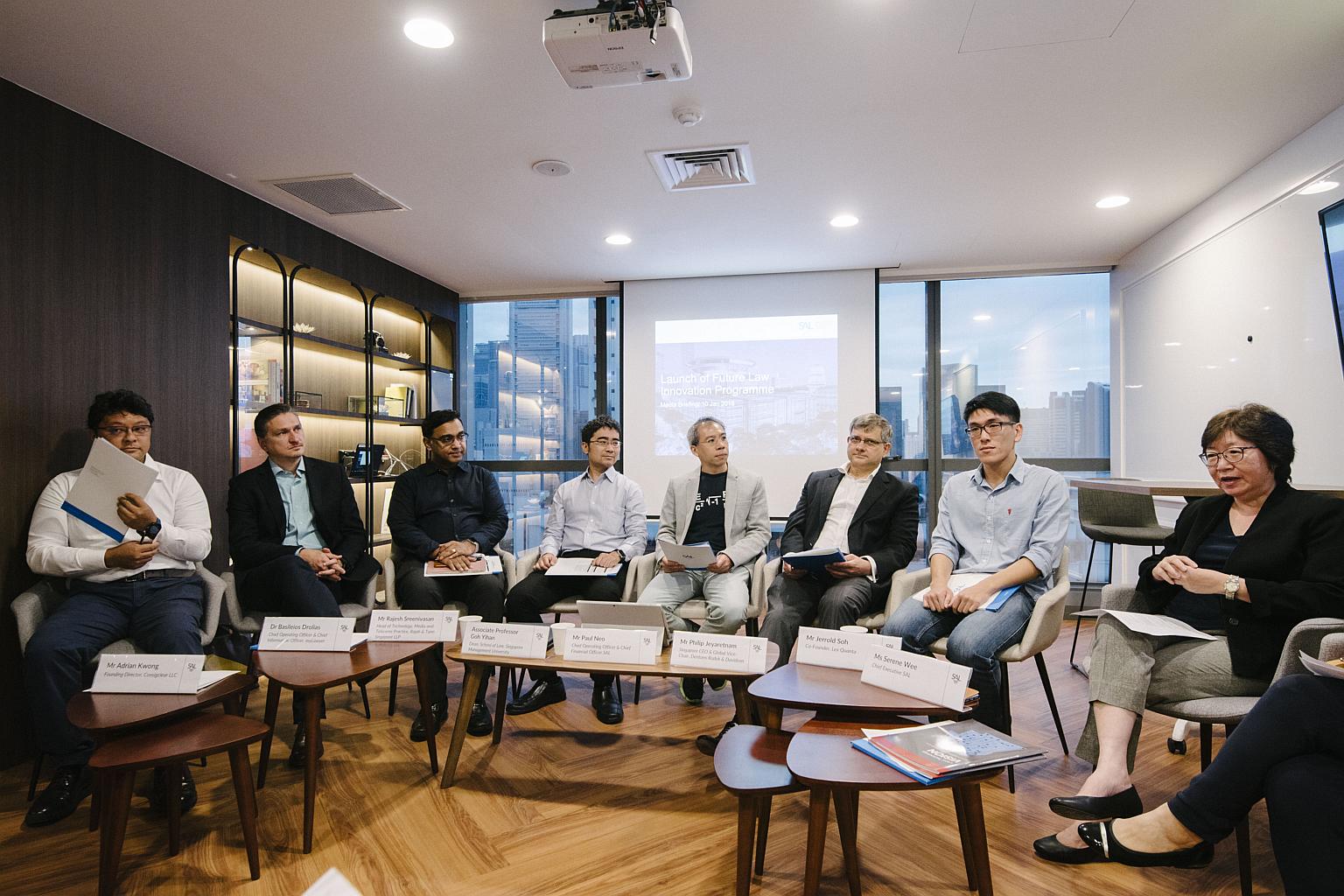FLIP the innovation switch for legal sector
Sign up now: Get ST's newsletters delivered to your inbox

Future Law Innovation Programme participants speaking during a panel at the official launch of the programme, on Jan 10, 2018.
ST PHOTO: ALVIN HO
SINGAPORE - A new breed of professionals known as "legal technologists" is being groomed as part of efforts to modernise the delivery of legal services in Singapore.
They will be trained with the latest IT tools and also armed with know-how in cybersecurity and computer systems integration before being deployed across law firms here.
Their mission will be to identify issues in the firms' business processes, coax them into adopting technology, and make recommendations on what the firms should do.
Chipping in on this effort are Singapore Management University (SMU) law students who will be identifying the problem areas faced by the legal industry.
These are changes that law firms can expect as part of tie-ups inked on Wednesday (Jan 10) by the Singapore Academy of Law (SAL) with SMU and also with the Info-communications Media Development Authority (IMDA).
The two pacts were made as part of the SAL's launch of the Future Law Innovation Programme (FLIP), which is a two-year pilot announced last July by Chief Justice Sundaresh Menon.
The programme's aim is to achieve what Chief Justice Menon described in a speech last year as the "Uberisation" of the legal practice, which is a reference to ride-hailing service Uber and its impact on efficiently matching supply and demand.
Speaking at the launch of FLIP, Justice Lee Seiu Kin said it has attracted 31 participants from 23 entities, including lawyers from law firms like Rajah & Tann, in-house counsel from corporations like BNP Paribas, and also representatives from legal tech startups like LexQuanta.
Justice Lee, who heads the SAL's Legal Technology Cluster, added that the response exceeded the programme's target for its first year, given its goal of 40 participants across two years.
Noting that there is much to look forward to in the "future business of law", Justice Lee said: "You have taken a bold step towards that by being part of FLIP."
Under the pact with SAL, SMU law undergraduates will also get internships with the academy and with FLIP participants, besides their role in identifying the problem areas in the legal industry.
Apart from grooming legal technologists, the agreement between IMDA and SALwill also involve a study of similar problem areas in other professional industries with the aim of developing cross-sector solutions for greater synergy.
Under FLIP, SAL also launched the Legal Innovation Lab @ Collision 8, a co-working space located at High Street Centre for law firms and in-house counsel to experiment with ways to improve their processes with inputs from legal tech startups.
An online collaboration platform known as LawNet Community was also launched and will offer all SAL members free accounts. Lawyers and academics will enjoy free basic services such as professional and business profiles.
A third plank of FLIP, which is a legal tech accelerator and touted as the first of its kind in Southeast Asia, will be launched in April.
A panel of experts, including Senior Counsel Philip Jeyaretnam and SMU law school dean Goh Yihan, stressed the importance of law firms and in-house counsel embracing technology during a discussion on Wednesday morning.
Lawyers need to take the threat of digital disruption more seriously, said Mr Paul Neo, chief operating officer and chief financial officer of the SAL.
"There is a healthy amount of scepticism about the need to innovate...To them, it's maybe a fad," he said.


